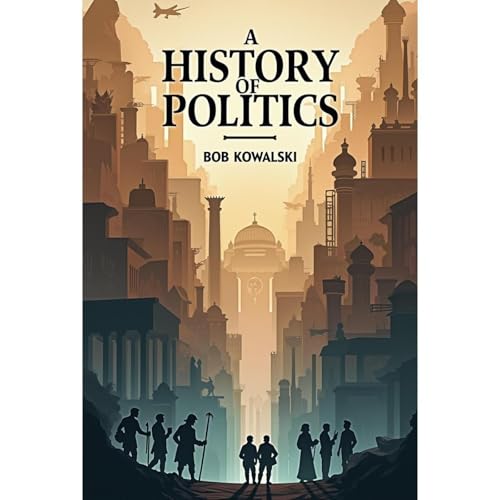
A History of Politics
No se pudo agregar al carrito
Solo puedes tener X títulos en el carrito para realizar el pago.
Add to Cart failed.
Por favor prueba de nuevo más tarde
Error al Agregar a Lista de Deseos.
Por favor prueba de nuevo más tarde
Error al eliminar de la lista de deseos.
Por favor prueba de nuevo más tarde
Error al añadir a tu biblioteca
Por favor intenta de nuevo
Error al seguir el podcast
Intenta nuevamente
Error al dejar de seguir el podcast
Intenta nuevamente
 Exclusivo para miembros Prime: ¿Nuevo en Audible? Obtén 2 audiolibros gratis con tu prueba.
Exclusivo para miembros Prime: ¿Nuevo en Audible? Obtén 2 audiolibros gratis con tu prueba.
Elige 1 audiolibro al mes de nuestra inigualable colección.
Acceso ilimitado a nuestro catálogo de más de 150,000 audiolibros y podcasts.
Accede a ofertas y descuentos exclusivos.
Premium Plus se renueva automáticamente por $14.95 al mes después de 30 días. Cancela en cualquier momento.
Compra ahora por $4.00
-
Narrado por:
-
Virtual Voice
-
De:
-
Bob Kowalski

Este título utiliza narración de voz virtual
Voz Virtual es una narración generada por computadora para audiolibros..
In the introduction, Kowalski defines politics as something that goes far beyond the struggle for power: it is a universal phenomenon that crosses cultures, eras and systems, serving as the basis for all forms of collective organization. Politics appears as a kind of invisible fabric that stitches together the history of human societies, from ancestral rituals to modern algorithms.
The work begins by exploring the emergence of politics in the earliest human societies, when decisions were made in tribal assemblies, influenced by rites, myths and religious leaders. From there, the author delves into the great civilizations of Antiquity — Egypt, Mesopotamia, the Indus Valley, China — highlighting the emergence of bureaucracies, legal systems and the association between power and divinity. Athenian democracy, the Spartan model, Greek philosophers and Roman law are all covered in depth, forming the foundations of the Western political tradition. Moving forward in time, Kowalski examines the medieval period, characterized by the fragmentation of power and the multiplicity of forms of government. European feudalism, the role of the Catholic Church, the Islamic caliphate and the systems of organization in China and Japan illustrate a diverse political world, in which religion, tradition and authority intertwine in complex ways. The thought of Augustine, Thomas Aquinas and Confucius is presented as an attempt to reconcile spirituality and political order. The transition to modernity is marked by the emergence of new ideas and ruptures. The Renaissance reclaims politics as an autonomous art, with Machiavelli proposing a realistic interpretation of power. Subsequently, the Protestant Reformation shakes European religious unity and reconfigures the political map of the continent. The Enlightenment brings to light fundamental theories about the social contract, natural rights and popular sovereignty, with thinkers such as Hobbes, Locke, Rousseau and Voltaire.
The book shows how these ideas triggered profound transformations, culminating in the American and French revolutions, which established models of constitutional republic and legal equality. In the 19th century, the great modern ideologies emerged — nationalism, liberalism, socialism — that shaped nation-states and inspired both emancipation movements and projects of colonial domination. Criticism of imperialism and resistance struggles also receive careful attention.
In the 20th century, politics is portrayed as a stage of tragedies and hopes. World wars, totalitarian regimes, the conflict between capitalism and communism and the emergence of social movements profoundly transformed the global scenario. In this context, politics took on new contours, with the emergence of multilateral institutions, such as the UN, and advances in civil rights, feminism and environmental protection.
Finally, the book focuses on contemporary dilemmas. The author analyzes the impact of digital technologies, the role of social networks, the spread of disinformation, mass surveillance and climate change. He also discusses populism, the crisis of representative democracies and the shift in global power, with a focus on the rise of China and the weakening of the Western liberal order.
Las personas que vieron esto también vieron:




Todavía no hay opiniones


